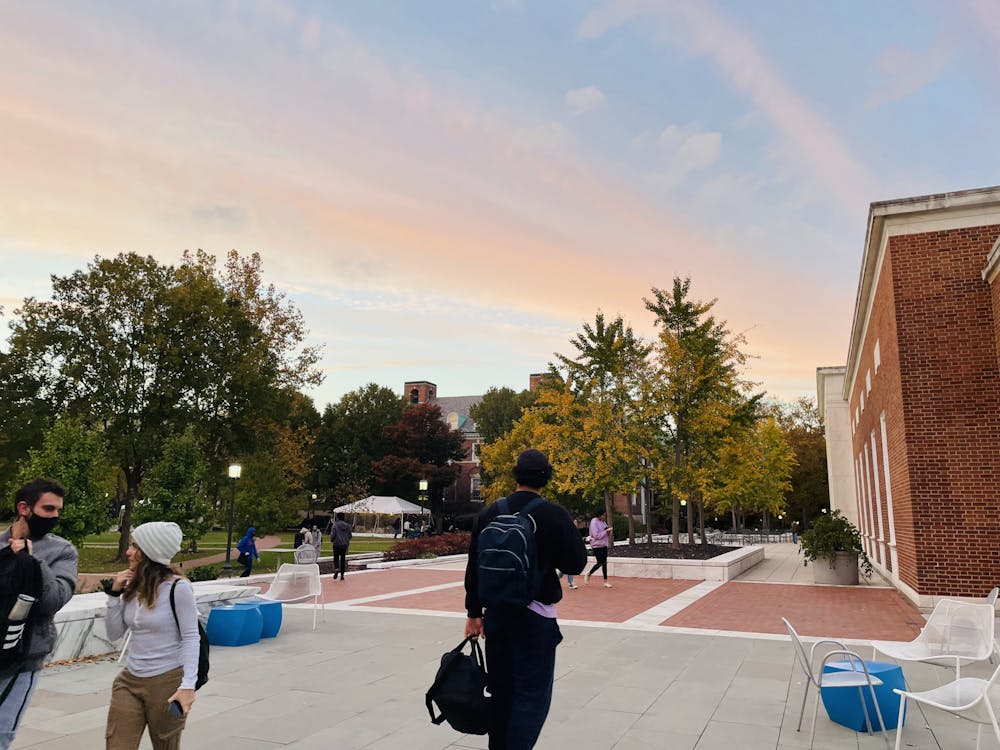With this year’s return to campus, clubs and other student organizations have been adapting to more in-person opportunities. However, students report that lingering COVID-19 restrictions have made it difficult for freshmen and sophomores to engage with registered student organizations (RSOs).
From dealing with technical difficulties during this year’s virtual Student Involvement Fair (SIF) to adapting to hybrid club formats, students discussed the benefits and challenges of joining student organizations during COVID-19 in interviews with The News-Letter.
Some students expressed frustration at how narrow the window is to get involved with certain clubs. Freshman Izzy Leonetti told The News-Letter that she did not feel fully prepared to submit club applications early in the semester.
“I felt like if you didn’t catch that first round of club applications, which took place while you were still trying to find your way around campus as a freshman, you missed out on being part of that club,” she said.
While some activities have moved to an in-person format this year, many clubs remain hybrid and have had to modify their format accordingly. Senior Sean Glaister, president of Biomedical Engineering Society (BMES) and co-president of Supporting Hospitals Abroad with Resources and Equipment, spoke to The News-Letter about the effectiveness of online platforms in replacing in-person meetings.
While noting that in-person events are a large contributor to students’ active involvement, Glaister has found that Zoom has been a somewhat effective alternative. He claimed that, due to the versatility of Zoom, the attendance for BMES events has remained at roughly the same level as past years. However, Glaister noticed that the virtual format has still limited active student engagement.
Sophomore Paul Gensbigler, a member of MEDLIFE and the executive board for Believe in Art, discussed the lingering impact of COVID-19 on club meetings in an interview with The News-Letter.
“Most of our [Believe in Art] meetings are in person, but whenever we have a large group we have to transition to online,” he said.. “It’s all based on how many people RSVP through CampusGroups, so if a large number RSVP[s] then we have to move online, but if it is a small-enough group then we can meet in person.”
Despite the apparent benefits of virtual club meetings, some students reported feeling less motivated to regularly attend such meetings.
“I just personally am really tired of Zoom calls, so I am way less inclined to go to an event if it is on Zoom,” Lindsay said. “For my online clubs, I don’t usually go to the meetings because they’re online.”
SIF has historically been the primary opportunity for students to interact with RSOs. Technical and logistical difficulties with this year’s virtual SIF posed challenges for students like Leonetti, who —despite joining Mock Trial and an intramural volleyball team — expressed discontent about the process of joining clubs.
“[SIF] was so bad,” she said. “It was really confusing [and] hard to navigate, and it crashed every second. I had to be on my phone hotspot to access it.”
Freshman Mariel Lindsay, a member of Black Student Union, Caribbean Cultural Society and the Mentoring Assistance Peer Program, agreed that SIF was not an ideal experience. Although she was also able to join clubs through HopkinsGroups on the day of SIF, there were technical issues with the site, and she found that it would often glitch or freeze when trying to join a group.
Though he agreed that an in-person SIF would have been more effective, junior Alexander Kernagis, co-founder and current managing partner of Cobalt Consulting Group, found that SIF played an important role in getting the word out about his club.
“If you’re new here, you don’t really know what’s going on unless you commit to scouring through HopkinsGroups, which isn’t the easiest site to navigate,” he said. “I can’t imagine a freshman would have an easy time on there learning about clubs, but given the constraints, it was a pretty good idea to give that option to students.”
According to Calvin Smith Jr., senior director of Leadership, Engagement & Experiential Development (LEED), changing this year’s SIF format to a virtual format did not have any impact on student participation.
“The LEED office hosted over 4800 students, that indicated they were interested and able to directly connect with RSOs collectively in over 14000 booths,” he wrote in an email to The News-Letter. “The participation this year was higher than last year’s for the same period.”
As a club leader, Glaister noted that he is aware of the shortcomings of a virtual SIF and prefers the in-person alternative.
“Virtual SIF has a benefit in that it’s really easy to navigate and filter for certain clubs [or] interests that a student is looking for. But for a large commitment like joining a club, the effort to go out to in-person SIF to join a club seems fitting and almost necessary,” he said.
Smith shared that the University had planned to host an in-person SIF on Oct. 14, but due to delays in the construction of the Ralph S. O'Connor Center for Recreation and Well-Being, the event was cancelled. Admin decided not to reschedule the in-person SIF to a later point this semester to avoid disrupting students’ midterm schedules. According to Smith, the University will host an in-person SIF next semester on Feb. 4.
“We understand students want in-person opportunities to engage their peers and we look forward to providing an in-person Student Involvement Fair and more fun exciting opportunities in the spring semester,” he wrote.





